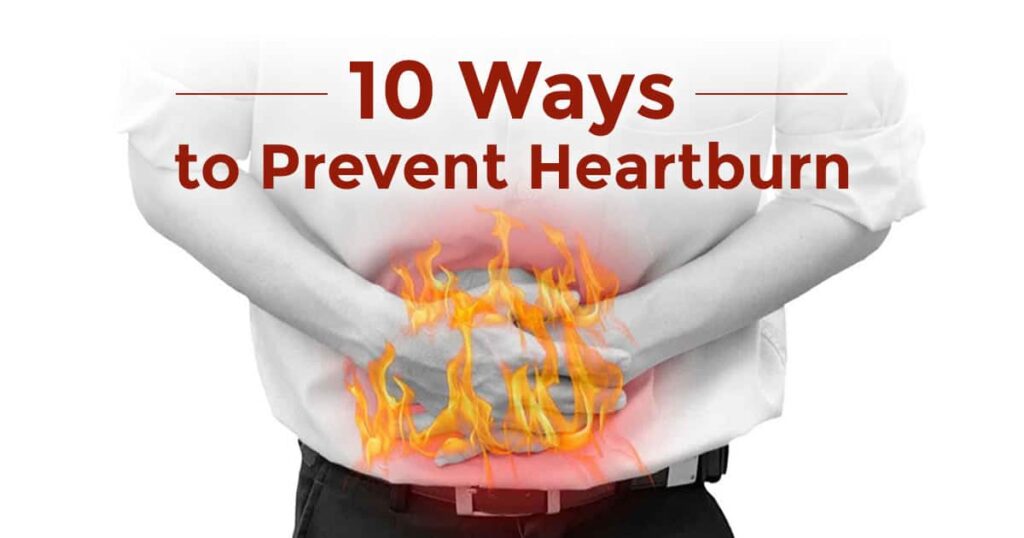Heartburn is one of the most common digestive complaints, affecting millions worldwide. It happens when stomach acid flows back into the esophagus, causing a burning sensation in the chest or throat. Heart burn may last anywhere from a few minutes to several hours, depending on its cause and severity.
In this article, you’ll understand the heartburn duration, triggers, and tips are essential for preventing discomfort and ensuring it doesn’t interfere with daily life.
How Long Does Heartburn Last?
The length of time heart burn lingers often depends on dietary choices, eating habits, and overall health. For some, it may fade in less than an hour after food digestion begins. For others, especially those who overeat or lie down too soon after a meal, the burning sensation may persist for several hours.
Another factor influencing how long heartburn lasts is whether it is an occasional symptom or part of a chronic condition such as gastroesophageal reflux disease (GERD). In GERD, repeated episodes occur frequently, and without management, symptoms can last much longer and become more severe over time.
Duration of Heart burn Episodes
In mild cases, heart burn usually subsides within 30 minutes to 2 hours as the stomach finishes digesting food and acid levels naturally decrease. This quick relief often happens when the burning sensation is triggered by overeating or temporary irritation rather than a chronic condition.
Simple changes such as drinking water, staying upright, or chewing gum can help speed up this process. For most people, occasional heartburn episodes are brief and don’t require medical treatment, but repeated or prolonged episodes may indicate an underlying issue.
For individuals who eat highly acidic, fatty, or spicy meals, the discomfort may linger longer than usual. These foods stimulate extra stomach acid, which increases the likelihood of irritation in the esophagus. If the stomach takes longer to process these foods, heart burn can stretch into several hours.
People with slower digestion or those who combine multiple trigger foods in one meal are more likely to experience prolonged burning sensations. In such cases, quick remedies like antacids can help, but prevention through dietary awareness is key.
Nighttime heartburn is often worse and more persistent because lying flat allows stomach acid to flow upward more easily. Gravity no longer helps keep the acid in the stomach, so symptoms can last well into the night or even disrupt sleep.
Doctors recommend avoiding large or late-night meals, elevating the head with pillows, and waiting at least 2–3 hours after eating before lying down. These practices can significantly reduce the duration of nighttime episodes and promote more restful sleep.
ALSO READ
What Is Heartburn? Causes, Symptoms, and Treatment To Know
Relief Methods for Heart burn
Over-the-counter antacids are some of the fastest solutions for easing heartburn discomfort. They work by neutralizing stomach acid, often bringing relief within minutes.
For people who experience frequent or longer-lasting symptoms, H2 blockers and proton pump inhibitors (PPIs) are often suggested, since they reduce acid production more effectively. These medications take longer to work but provide extended protection, making them useful for chronic or recurring heartburn.
Lifestyle modifications, however, are just as important as medications when it comes to long-term relief. Eating smaller, balanced meals prevents the stomach from becoming overly full and pushing acid upward.
Avoiding trigger foods such as citrus, tomatoes, chocolate, coffee, and spicy dishes helps minimize irritation. In addition, quitting smoking and reducing alcohol intake can lessen heart burn episodes, since both habits weaken the esophageal sphincter and allow acid to escape more easily.
Stress management also plays a significant role in controlling heart burn. High stress levels can increase acid production and muscle tension, worsening symptoms.
Practices like deep breathing, meditation, light exercise, and maintaining a consistent sleep routine can help reduce both the frequency and duration of heart burn. By combining medication when necessary with healthy lifestyle habits, individuals can find faster relief and prevent recurring discomfort.
When to Seek Medical Help
Occasional episodes are usually harmless, but if heartburn occurs more than twice a week or lasts several hours despite remedies, it may signal a more serious condition like GERD. Persistent symptoms require professional evaluation to prevent complications such as esophageal damage.
Seek urgent care if the burning is accompanied by chest pain, difficulty swallowing, or unintentional weight loss. These can mimic or indicate other health issues, including cardiac problems, which should never be ignored.
Tips to Shorten Heart burn Duration

- Sit Upright Immediately: Lying down worsens heart burn because stomach acid can easily move upward. Sitting or standing upright helps gravity keep acid where it belongs, easing discomfort faster.
- Drink a Glass of Water: Sipping water can wash acid back down into the stomach, diluting its effect on the esophagus. Small sips are better than chugging, which might bloat the stomach.
- Chew Sugar-Free Gum: Chewing gum boosts saliva production, which naturally neutralizes acid. The act of swallowing saliva repeatedly also clears acid from the esophagus more quickly.
- Avoid Tight Clothing: Tight belts or waistbands put extra pressure on your stomach, pushing acid upward. Loosening your clothes can ease the burning sensation sooner.
- Eat a Banana or Oatmeal: Bland, low-acid foods like bananas and oatmeal can coat the stomach lining and absorb excess acid, helping reduce irritation and shorten the flare.
- Try Ginger Tea: Ginger has soothing and anti-inflammatory properties. A warm cup of ginger tea may calm the stomach and reduce irritation that prolongs heartburn.
- Don’t Lie Down After Eating: If you recently ate, wait at least 2–3 hours before lying down. Staying upright lets your stomach digest food and reduces the chance of acid pushing upward.
- Use an Antacid: Over-the-counter antacids work quickly by neutralizing stomach acid. They provide fast relief and can shorten the duration of discomfort.
- Practice Deep Breathing: Stress can make heartburn worse by tightening stomach and esophageal muscles. Slow, deep breathing relaxes the body and may ease symptoms faster.
- Avoid Trigger Foods and Drinks: During an active episode, avoid coffee, spicy foods, citrus, chocolate, and carbonated drinks. Steering clear of triggers prevents worsening and allows the burning to fade quickly.
Key Takeaway
Daily routines have a huge impact on the persistence of symptoms. For example, lying flat immediately after a meal or bending over can intensify the burning sensation. Waiting at least 2–3 hours before lying down and sleeping with your head elevated can make a noticeable difference.
Exercise timing also matters. While physical activity benefits digestion, engaging in intense workouts immediately after eating can exacerbate acid reflux. Gentle walks after meals, however, can help food move through the digestive tract more quickly, reducing the likelihood of prolonged heartburn episodes.
Heart burn can last anywhere from a few minutes to several hours, depending on diet, habits, and underlying health conditions. While quick relief is available through antacids or lifestyle adjustments, frequent symptoms should not be ignored. With the right care and awareness, managing heart burn becomes much easier and helps ensure a better quality of life.
FAQs
How long can heart burn typically last?
Heart burn usually lasts between 30 minutes and 2 hours. In some cases, especially after large meals or spicy foods, it can linger longer, but consistent lifestyle changes help reduce duration.
Can stress make heartburn last longer?
Yes, stress triggers extra stomach acid production, which prolongs symptoms. Relaxation techniques like deep breathing, yoga, or meditation can help minimize flare-ups.
Does heartburn at night last longer than during the day?
Often, yes. Because lying down makes it easier for acid to rise, nighttime episodes may feel more intense and persist for several hours unless posture adjustments are made.
When should I worry about frequent heart burn?
If it occurs more than twice weekly, lasts for hours, or resists treatment, it may indicate GERD. Persistent heart burn requires medical attention to prevent long-term complications.




Join The Discussion